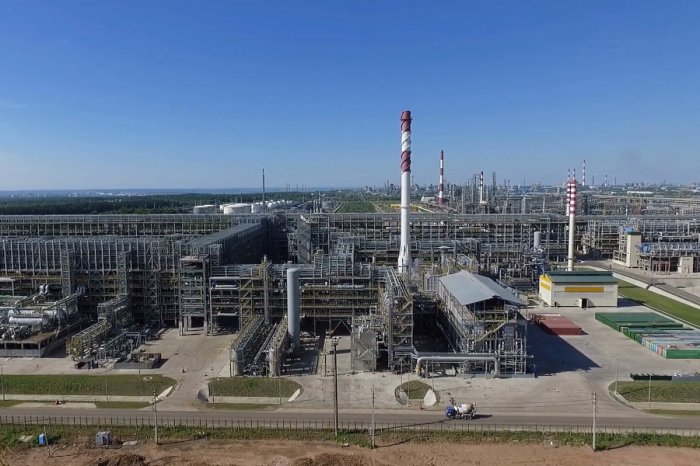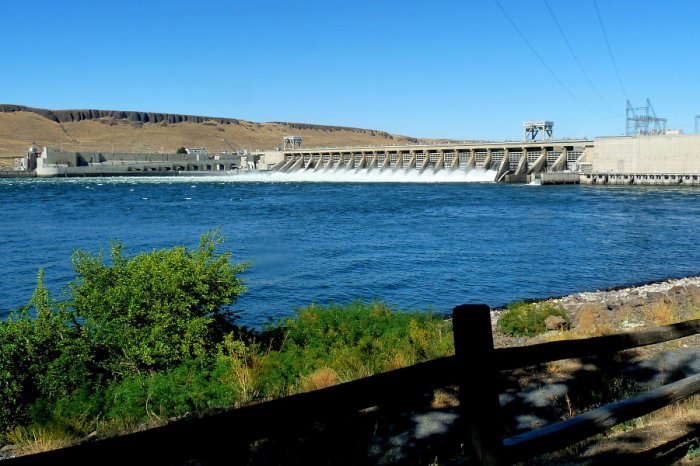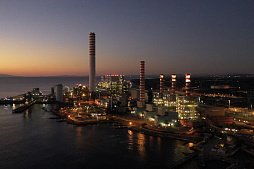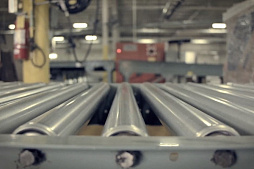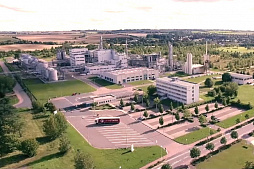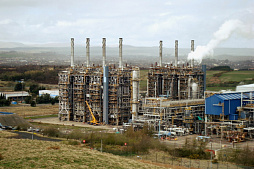To consider an application for financing, fill out the form and send it to us by e-mail along with the project brief, or contact our experts
Investments in chemical industry, construction of new chemical plants and modernization of existing facilities serve as drivers of global economic growth.
Despite numerous systemic problems and high competition, financing of the chemical industry remains attractive for large commercial banks, investment funds, international financial institutions and companies from related industries.
Global investment trends in the chemical industry
Global investment in the chemical industry has grown over the decade since the end of the financial crisis.The European Chemical Industry Council noted that the industry grew from $1.17 trillion to $3.67 trillion between 2009 and 2019, and was in great shape before the pandemic. 2020 saw a 0.4% drop in the chemical industry, but the following year saw a rapid recovery that continued until the start of Russia's war in Europe.
Despite the expected slowdown of the world economy and the increase in gas and electricity prices, experts predict excellent long-term prospects for chemical industry projects. The emphasis of most large chemical companies on asset diversification and investing in higher value-added business opportunities remains unchanged.
In addition, the issue of increasing production efficiency and reducing dependence on natural gas has become a pressing issue for companies.
At the beginning of 2022, the market predicted strong demand for chemicals, which should be the driver of growth throughout the year. Increased capital spending by chemical companies in previous years has done much to improve production efficiency and expand capabilities, but the last year has been a difficult period of struggle due to unpredictable geopolitical events that have shaken Europe and the world.
Against the backdrop of grandiose plans for a green transition, chemical plants faced skyrocketing gas prices and additional electricity costs, which, along with the contraction of the leading markets, forced many companies to review their investment plans.
China will remain the global leader in the chemical industry in the near future, and one of the strategic directions will the production of plastics.
The largest contribution to the increase in chemical production will be made by the segment of hydrocarbons, compounds of the oxygen group and other organic products.
China's chemical manufacturers are betting to break out of this type of low-margin market and produce the complex products needed for national economic development. Therefore, investment in new modern plants will play a key role in China's chemical industry.
The United States continues to invest heavily in the production of basic chemical products, and the country will retain its second place in the world in the coming years. At the same time, the chemical industry will develop in the areas of specialized chemical products for the oil refining industry, production of plastics and coatings, as well as special polymers, which will be growth leaders.
We should also mention such significant players in the chemical sector as Germany and Brazil.
The former is recognized throughout the world as an innovative industrial state, and the latter is considered a major producer of basic chemical products thanks to the use of the country's rich natural resources.
Although rising energy prices will cause some problems for the German chemical industry, the country's long-term prospects look optimistic.
One of the sectors with a global demand trend for the basic chemical sector is represented by the pharmaceutical sector. Investment in this industry will provide significant opportunities for growth in the production of basic chemicals, but this growth will depend not only on the production of companies, but also on the commitment of governments to this sector.
History and future prospects of the chemical industry
The chemical industry in the broadest sense is an industry that is focused on large-scale chemical transformations.Enterprises in this industry are engaged in the extraction and processing of raw materials, both natural and synthetic, and their transformation into other substances with characteristics different from those they originally had.
This is a huge capital-intensive industry, which is divided into dozens of areas.
Chemical industries can be classified into basic industries and deep chemical transformation industries. The former work with natural raw materials, and produce simple semi-finished products that are the basis for other industries.
Basic chemical productions are usually located in places close to the sources of supply. The basic chemical industry obtains raw materials from the air (oxygen, nitrogen), from water (hydrogen), from the earth (coal, minerals) and from the biosphere (rubber, fats, wood and alkaloids).
In turn, deep chemical transformation enterprises transform semi-finished products into new products that can be put directly on the market or used in other sectors.
At the end of the 18th century, connections between rigorous scientific chemistry and industrial practice appeared. For example, the development of a chamber process for obtaining sulfuric acid or the method of soda production proposed by Leblanc.
In the second half of the 18th century, sulfuric acid, soda and potash factories already existed in France and Great Britain, and the production of chlorine bleaches and gunpowder was developing in France. All this required huge investments, which were made thanks to the rapid development of the financial sector.
At the beginning of the 19th century E.I. du Pont de Nemours was founded in the United States by gunpowder factories. At the turn of the 18th and 19th centuries, the industrial production of zinc and cadmium, as well as the production of coke, began in Silesia. In the 19th century, mineral fertilizers were more widely used, the main of which was sodium nitrate, imported from Chile, and phosphorus fertilizers obtained from Great Britain. Potash industry was created in Germany.
In 1853, the Lviv apothecary Ignacy Lukasevich distilled crude oil into kerosene, and in 1854–1864 he started an oil refining industry in Subcarpathia, which began to develop widely in the USA only in 1859.
Organic compounds discovered at that time began to be mass-produced from crude oil and coal. The development of the textile industry has led to an increase in the demand for fabric dyes. In 1856, Perkin patented the first artificial dye, marking the beginning of the dyeing industry. For the next several decades, German and Swiss plants dominated the production of artificial dyes.
A vivid example of the success of such companies as BASF, Solvay, Bayer and Wacker Chemie shows the complex path of evolution that the global chemical industry has gone through over the past century and a half.
Today's success has its roots mainly in 19th century Europe, when the financing of chemical plants became one of the pillars of economic growth and progress.
From the second half of the 19th century, Germany and Great Britain fought for industrial supremacy in Europe. In the chemical industry, Germany was the winner, although the First World War significantly weakened this country and forced local companies to restore their positions for many years to come. At that time, on the other side of the Atlantic Ocean, the American chemical industry was rapidly developing, fueled by scientific achievements and large capital investments.
After 1945, the production of plastics, synthetic fibers and artificial rubber, as well as silicon compounds, semiconductors and liquid crystals developed worldwide.

The production of new drugs, as well as insecticides and fungicides, has become important for the world economy. In 1946–1956, the world production of petrochemicals increased 100 times. Substances containing radioactive isotopes used in analytical chemistry have gained great importance.
Significant investments are currently being made in the search for new chemical energy sources.
Among the “old industries”, the chemical industry appears to be an ideal investment opportunity.
Indeed, the chemical sector is viewed by venture capital investors as an industry that has traditionally striven to achieve stable and predictable growth, creating added value for its shareholders.
It is a huge market with a global reach, driven by two main strategic lines and with cyclical business indicators that help identify favorable moments for investment.
According to the European Chemical Industry Council, in 2020 the global sales of the chemical industry exceeded 3.47 trillion euros, of which more than 1.54 trillion euros came from sales of chemical enterprises in China. Chemical companies manage the growth of business indicators using two strategies. It can be either a specialization in finished products (Bayer, Roche) or the production of basic chemical products (BASF, DuPont). Both strategies can be commercially successful.
According to estimates, the demand for chemical products will grow by 3-5% annually in the coming decades. In response to these forecasts, leading chemical companies continue to invest in new plants and actively modernize and improve existing facilities.
By 2027, experts expect an increase in the need for high-performance special chemical products. Industrial cleaning agents, adhesives, special coatings, sealants, fillers and other construction chemicals will be of significant interest to investors in the near term. Advanced petrochemical projects are actively developing, in particular ethane cracking plants (transformation of natural gas components into plastic products).
In addition, the market expects an increase in investment in the production of consumer chemicals and pharmaceuticals.
The demand for basic chemicals to meet both existing and new production capacity induces a "pull effect", creating favorable conditions for further investment in the oil and gas sector. The International Energy Agency (IEA) estimates that by 2040, the petrochemical industry will replace the fuel sector as the main driver of global crude oil demand.
As for the daily demand for oil in the chemical industry, it will reach 15.7 million barrels, which is 47% more than in 2015.
Global investments in the modernization of chemical plants
According to approximate estimates, today more than 10 thousand chemical and pharmaceutical plants in Europe, North America and the Middle East need modernization.Chemical facilities that have been operated for more than 10-12 years always require careful attention and assessment of the need for modernization and repair.
The chemical industry carries many dangers for the environment and humans. The main threat is toxic chemicals and by-products that, if not managed properly, can pose a threat to human health and the health of ecosystems, climate and biodiversity. Greenhouse gas emissions and waste generated during production, as well as high water consumption, also pose a risk.
The chemical industry is accelerating more and more, but guided by the idea of sustainable development, which aims to meet the needs of both present and future generations, solutions should be sought that allow the further expansion of the industry without harming the environment. Capital-intensive measures to modernize chemical plants are planned and already being carried out by leading companies within the framework of current environmental legislation, which is constantly being improved.
This requires long-term investments, which are measured in tens and hundreds of millions of euros for each facility.
Investments can be especially useful right now, when the world is entering the era of Industry 4.0. It is the fourth industrial revolution after the age of steam, electricity and computers.
A change that has been observed for several years, particularly in the chemical industry, is the disappearance of the barrier between humans and machines. The key for the development of Chemistry 4.0 is data, the effective use and transfer of which between devices allows the control and analysis of information in real time, allowing the control of machines, robots and vehicles.
Investments in this area will not only facilitate processes and reduce costs, but also reduce the negative impact of industry on the natural environment by increasing the use of renewable energy in production, reducing carbon dioxide emissions, increasing energy efficiency in the chemical industry and increasing the productivity of chemical plants.
Digitalization of chemical plants remains a critically important trend worldwide.
In Germany, in particular, more than 70% of EPCM contractors consider digital products and services as a means to increase sales.
Standardized interfaces embedded in the transdisciplinary engineering design process are also seen as a way to improve efficiency.
The lack of a coherent data architecture remains a challenge in chemical plant engineering. The IT landscape is very diverse and it takes a lot of effort to manage the interfaces. Even process flows differ significantly from company to company, making it difficult to collaborate and create baseline standards for effective digitalization. This requires additional efforts and investments when planning the modernization of chemical plants.
The chemical industry is also set to undergo a transformation thanks to the European Green Deal, which aims to achieve climate neutrality in the EU by 2050.
The chemical sector can contribute to this plan not only by making changes, but also by supporting other sectors of the industry. One of the factors of positive changes can be green hydrogen, the properties of which can be used in energy, gas, heating and transport.
It is created by passing a high-voltage current through water, causing the water to split into hydrogen and oxygen.
The chemical industry can help the energy sector by creating more efficient and environmentally friendly photovoltaic panels and wind turbines. It is also possible to increase the service life of batteries, for example, in electric cars. In addition, the industry offers its expertise in improving the quality of insulation materials, windows and roofs that help reduce energy consumption in buildings.
The chemical industry also has solutions for situations where emissions of harmful gases cannot be reduced because they can be captured and converted into useful measures. Chemical processes also break down plastic into chemicals suitable for reuse.
Experts think that we live in a time when investments in technology companies do not bring the expected benefits. The capital that was used for these investments needs other industries where it can be used and generate income that satisfies the demands of investors.
Thus, traditional industries are one of the focus points for commercial banks, venture capital firms and investment funds.
These players are looking to invest in companies belonging to the old economy, such as chemical plants. Although these companies are less optimistic in terms of expected profitability, the increase in investor interest in the chemical sector is being observed around the world against the background of stricter requirements of environmental legislation and the urgent need to improve production efficiency and reduce fuel and energy costs.
Financing the construction of new chemical plants
Chemical enterprises continue to build new plants. Global investment in this industry is measured in the hundreds of billions of dollars every year.Most companies take a traditional approach to financing, design and construction, but project finance is playing an increasingly important role in this capital-intensive industry. In addition, EPC and EPCM contractors are going to make significant changes in the construction of new facilities.
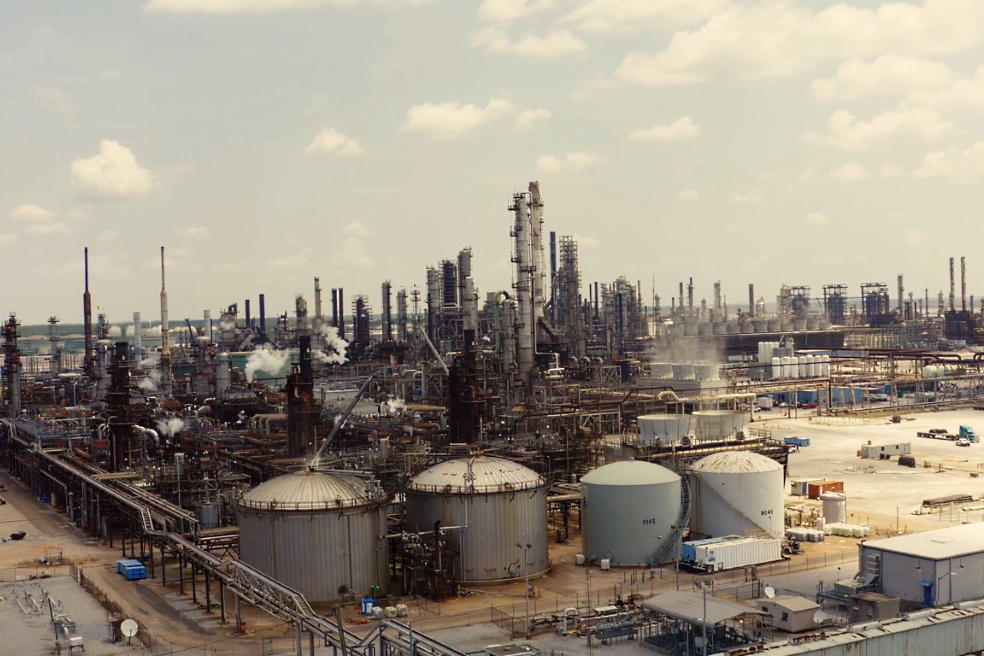
Capital expenditures for the expansion of chemical production, as well as the number of new plants and equipment, have increased significantly in the global chemical industry in recent years.
According to the European Chemical Industry Council (CEFIC), capital spending in the global chemical industry more than tripled from 2005 to 2015, despite the financial crisis.
Long-term investment loans and project finance (PF) played an important role in this growth.
Structural changes in the financing of the chemical industry have been taking place since at least the mid-2000s. As investment projects grow, the costs and risk that participants must accept increase. Because of this, chemical plant investors and operators prefer to do business with global partners that offer end-to-end services, from feasibility studies to commissioning, and often financing. Most local construction companies are too small to take on this role.
Meanwhile, competition on world markets will be even tougher.
EPCM and EPC contractors based in China, Europe and the US are considered to be the main competitors in the large project market.
The inability of the construction company to provide long-term financing and unwillingness to offer alternative financial services are often the reasons that potential customers refuse to cooperate. According to research conducted in the EU, in every fourth application, clients request financing for their investment project.
Although capital expenditures in the chemical industry have increased, the trend toward larger plants is reducing the number of medium-scale projects.
Responding to growing market demand, engineering companies are leveraging their technology and expanding their portfolio of operational services to attract industrial customers from all over the world.
Link Bridge Financial LTDA LBFL is an international company with roots, which is present in many markets of Europe, Latin America, the Middle East, North Africa, East Asia, as well as in the USA, India and other parts of the world.
We offer project finance services, long-term investment loans for the construction of chemical plants, as well as loan guarantees and consulting services.
We help finance the following types of chemical facilities:
• Oil refineries.
• Ethane cracker plants.
• Mineral fertilizer plants.
• Pharmaceutical plants.
• Dye & pigment manufacturing plants.
• Plastic and polymer coatings manufacturing plants.
• Production of basic chemical products and others.
Together with leading EPC companies and well-known manufacturers of chemical equipment, we are ready to offer comprehensive engineering and financial solutions for each investment project.
Contact our representatives to learn more.






